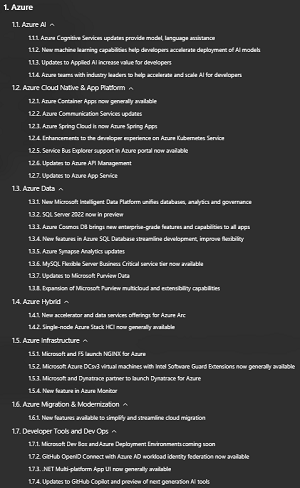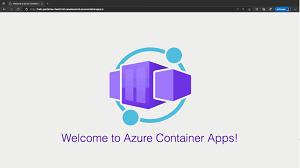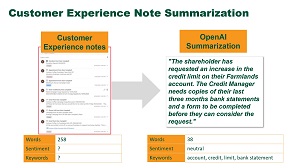News
Azure Container Apps Lead Big Cloud Push at Microsoft Build 2022
Microsoft announced the General Availability of Azure Container Apps at its big Build 2022 developer conference that was chock full of cloud-related news.
Azure products and services overwhelmingly dominated the conference, spanning areas from Azure AI to Azure Data to Azure Hybrid to Azure Migration & Moderation, as the following table-of-contents graphic from Microsoft's Build Book of News illustrates:
 [Click on image for larger view.] Book of News ToC (source: Microsoft).
[Click on image for larger view.] Book of News ToC (source: Microsoft).
Azure Container Apps, the subject of just one of several GA announcements, enables organizations to run microservices and containerized apps on serverless platforms, wherein functions -- or chunks of source code -- are typically triggered by user or system events. Azure Container Apps leverages containers purpose-built for serverless computing and is itself built on the foundation of open source technology in the Kubernetes ecosystem, Microsoft said, including Kubernetes Event Driven Autoscaling (KEDA), Distributed Application Runtime (Dapr), and Envoy running on the Azure Kubernetes Service (AKS).
"Azure Container Apps is an app-centric service, empowering developers to focus on the differentiating business logic of their apps rather than on cloud infrastructure management," Microsoft said in a post last week during the Build conference. "Azure Container Apps executes app code packaged in any Linux-based container without enforcing opinionated runtimes or programming models. Scale all the way down to zero or scale out to meet global demand in response to HTTP requests or events. Alternatively, Azure Container Apps supports running apps as always-on background services."
 [Click on image for larger, animated GIF view.] Creating a Container App in Animated Action (source: Microsoft).
[Click on image for larger, animated GIF view.] Creating a Container App in Animated Action (source: Microsoft).
Supported scenarios listed by Microsoft include:
- Microservices: The Azure Container Apps and Dapr integration offers developers an optional set of APIs that simplify the authoring of apps and microservices. For example, apps can communicate securely and reliably over mTLS through Dapr service invocation or via message passing through Dapr's pub/sub API. Dapr-enabled apps provide distributed tracing out of the box which can be integrated with Application Insights and can leverage a growing list of pluggable Dapr components. The Dapr component model removes the need to instrument resource-specific SDKs or libraries within app code, empowering teams to achieve app portability and high-fidelity experiences in local development. Individual microservices can scale independently based on demand using any KEDA-supported scale triggers.
- Event-driven processing: Azure Container Apps serverless apps can process events from a growing list of KEDA-supported event sources and can scale based on custom insights for each event type. Users can even run event-driven or always-on background services.
- Web apps and public web API endpoints: Azure Container Apps can be configured to enable ingress and make apps publicly available. Azure Container Apps revisions help with managing different app versions and even with distributing incoming HTTPs requests between different versions. Custom domains and certificates can be added to personalize apps. Serverless scale is driven by the number of concurrent HTTPs requests.
Along with Azure Container Apps, other Azure products and services reaching GA or Preview status at Build include:
- Updates to Azure App Service (GA or in preview): This fully managed platform for building web applications, mobile back ends and RESTful APIs in the programming language of your choice has GA or preview updates including:
- Google Remote Procedure Call (gRPC) support, in preview, helps customers host their gRPC apps on Azure App Service. gRPC uses the HTTP/2 protocol to streamline messaging between clients and back-end servers as an efficient way to connect services that require high-performance communication.
- The App Service Landing Zone Accelerator has been released. It's a documentation/automation offering that helps customers deploy a reference enterprise scale deployment of Azure App Service on the App Service Environment v3. The combination of documentation and deployable artifacts simplifies the movement of enterprise apps from an on-premises environment to Azure App Service.
- Azure App Service bulk migration capabilities is coming to preview in the coming weeks. It enables customers capabilities beyond just discovering and assessing ASP.NET web apps, such as categorizing which apps are ready for migration, suggesting a SKU for migration and providing a guided content and configuration experience for ASP.NET web apps to Azure App Service.
- Azure Communication Services updates: Now at GA is the Azure Communication Services Mobile UI Library, designed to help developers save time and reduce complexity by providing production-ready UI components for mobile apps. The release supports 13 languages, accessibility for UI components and viewing shared screen content, including pinch-to-zoom. In preview is the ability to build communications-enabled apps using Azure Communication Services Email, providing the ability to add email notifications to their apps.
-
Updates to Azure API Management: This is a hybrid, multi-cloud management platform for APIs across all environments, with the following now being generally available:
- Azure Private Link support allows incoming traffic to Azure API Management's gateway to be secured to clients running in a virtual network through Azure Private Link.
- Managed certificate support lets customers secure their custom domains easily and quickly with a free certificate provisioned, managed and automatically renewed by Azure API Management.
- GraphQL passthrough support helps customers leverage the existing benefits of Azure API Management, including security, observability and reduced latency for their GraphQL APIs while also adding GraphQL-specific features. "Other benefits include the ability to easily add GraphQL services as APIs, securing GraphQL APIs by applying existing and GraphQL-specific control policies and exploring the schema and run text queries against GraphQL APIs in the Azure and developer portals."
- Azure Cognitive Service for Language: This now offers the new capability to summarize documents and conversations in order to help developers quickly surface key information in documents and contact center calls, such as the reason for the call and resolution. Additional capabilities now GA include custom-named entity recognition to help developers identify terms specific to a domain, along with custom-text classification to help developers organize and categorize text with a customer's domain-specific labels, such as a support ticket or invoice.
 [Click on image for larger, animated GIF view.] Note Summarization in Animated Action (source: Microsoft).
[Click on image for larger, animated GIF view.] Note Summarization in Animated Action (source: Microsoft).
-
Updates to Azure Machine Learning: Here, the company announced that the Azure Machine Learning responsible AI dashboard is now in preview, helping developers and data scientists more easily implement responsible AI. "The dashboard brings together multiple capabilities such as data explorer, fairness, model interpretability, error analysis and counterfactual and causal inference analysis, which help developers debug their models and make more informed, data-driven decisions. In addition, Azure Machine Learning now offers a responsible AI scorecard to summarize model performance and insights, helping technical and non-technical audiences understand the impact of applying responsible AI," Microsoft said while also announcing:
- Azure Machine Learning managed endpoints, now GA, help developers and data scientists more easily deploy large-scale machine learning models for both real-time and batch inferencing.
- AutoML features, in preview, include support for natural language processing and image tasks, generation of models' training codes and enhancements for product integration and machine learning operations (MLOps).
- The Python SDK v2, in preview, simplifies the developer experience, and the Command Line Interface v2, generally available, allows users to participate in the machine learning lifecycle without needing to learn specific programming languages.
- Azure Portal: Service Bus Explorer capabilities are now GA, letting developers use the portal to specify a Service Bus namespace and then send messages to a queue or topic in that namespace, as well as receive or peek at messages from a queue or a subscription.
-
Azure API Management: This service provides a hybrid, multicloud management platform for APIs across all environments. Updates include:
- GraphQL passthrough support is now GA. With GraphQL support, customers can leverage the existing benefits of Azure API Management, including security, observability and reduced latency for their GraphQL APIs while also adding GraphQL-specific features. Other benefits include the ability to easily add GraphQL services as APIs, securing GraphQL APIs by applying existing and GraphQL-specific control policies, and exploring the schema and run text queries against GraphQL APIs in the Azure and developer portals.
- Synthetic GraphQL and Token Store are both in preview.
-
Microsoft Intelligent Data Platform: Now GA, this is a new, integrated platform that unifies databases, analytics and governance in one offering to help organizations invest more time creating value rather than having to manually integrate and manage a fragmented data estate. Microsoft said it addresses major customer pain points such as market fragmentation while also empowering customers to capture and utilize data more efficiently to increase market share, effectively letting organizations:
- Easily pivot and adapt in rapidly evolving landscapes
- Add layers of intelligence to their apps
- Unlock predictive insights and govern their data anywhere
All of the above is just part of Build's Azure-related news, showing just how much Microsoft is banking on the cloud for its developer initiatives going forward. To see the entire list, consult the Book of News link above.
About the Author
David Ramel is an editor and writer at Converge 360.